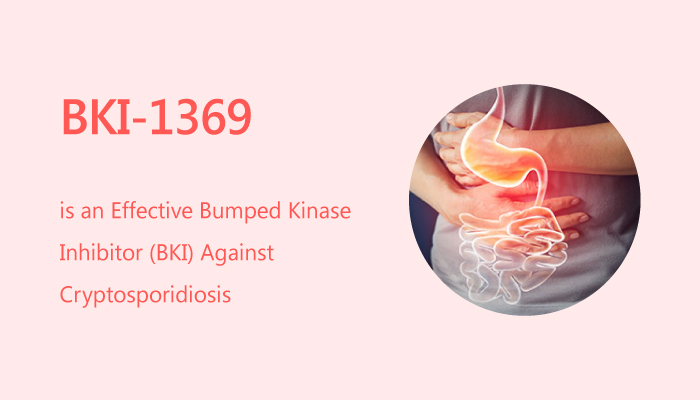Nowadays, cryptosporidiosis is no stranger to us. We have mentioned such disease in our previous blogs. It is a main cause of diarrhea in children under 2 years old especially in developing countries. Malnourished or immunocompromised young children easily get infected with Cryptosporidium hominis. What’s worse, it is threatens people’s lives.
Although scientists found Nitazoxanide as an FDA approval drug in the treatment of Cryptosporidium, it is partially effective in children. Thus, more effective parasite-specific drugs are still in need.
Recently, Sangun Lee, et al conducted a series of experiments on a bumped kinase inhibitor (BKI) 1369 (BKI-1369). They found the inhibitor possesses anti-cryptosporidiosis effect.

In animal assays, researchers infected piglets with C. hominis. They measured oocyst excretion in infected piglets in the absence or presence of BKI-1369. As a result, BKI-1369-treated animals excreted less oocysts than untreated animals. BKI-1369 also decreases diarrhea in parasite-infected piglets.
Furthermore, researchers studied the histopathology. BKI-1369 markedly reduced parasite colonization. It also ameliorated epithelial cell necrosis and loss induced by C. hominis. This indicated that BKI-1369 inhibited villus blunting and fusion and minimized lymphocytic and neutrophilic inflammation.
According to the excellent potency of BKI-1369, researchers underwent the pharmacokinetic assay in vivo. They measured the contents of BKI 1369 and its metabolites, BKI 1318 and BKI 1817, in serum, urine and gut. BKI 1369 exhibits potent pharmacokinetic propertiy.
In addition, BKI 1369 has no obvious tissue toxicity in C. hominis induced piglets.
References:
1. Lee S, et al. Antimicrob Agents Chemother. 2018 Jun 26;62(7).